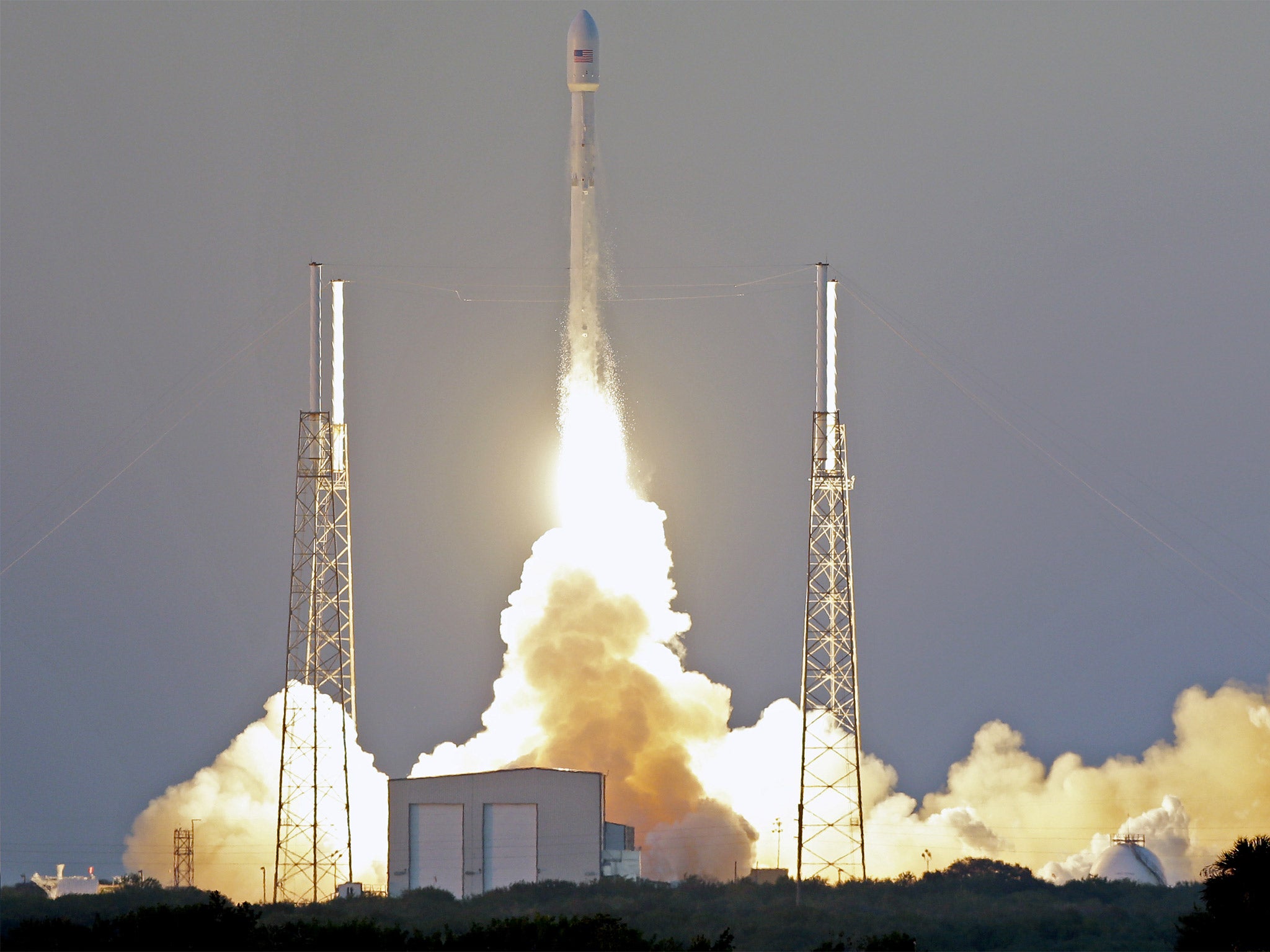Elon Musk's SpaceX asks government's permission to put 4,000 internet satellites into orbit
The tiny and cheap satellites would float around space beaming internet to people on Earth

Elon Musk has asked the government to let his private space travel company, SpaceX, put 4,000 satellites into orbit to provide internet for the earth.
The PayPal founder hopes that the satellites could take on conventional internet companies by sending internet signals across the globe, allowing it to provide cheap and fast internet even to places that have traditionally struggled to get connected. It hopes to find success by both taking customers from existing internet service providers as well as getting the billions of people that can’t get online onto the internet.
Musk has moved forward with the project by filing with the US Federal Communications Commission to ask to be given permission put the satellites into space. It was first mooted at the beginning of the year, but the submission was made public by the Washington Post.
READ NOW
SpaceX tests the system that will save astronauts if Elon Musk’s rockets go wrong
SpaceX to try and land a rocket on a barge, but mission likely to go wrong
Elon Musk's SpaceX deliver Turkmenistan's first ever satellite after successful Falcon 9 launch
The filing asks to start testing the satellites next year, according to the newspaper. After that, the service could be working in about five years.
In the tests, Musk would send the satellites up on a Falcon 9 rocket, made by SpaceX. They would communicate with ground stations in the US, and establish whether those connections would be enough to send information from the ground to the satellites with enough speed and consistency to work for internet connections.
Musk is only one of a number of entrepreneurs and companies that have looked to build such project, and is up against Richard Branson-backed OneWeb, which wants to provide a similar service. Such ventures have failed in the past — in the 1990s, a Bill Gates-funded company, Teledesic, ran up costs of $9 billion before it realised that its satellite-powered internet was not going to work.
But Musk’s success could be in the fact that he would be able to send the rockets up in SpaceX’s own products, meaning that the company could control the whole process itself.
Join our commenting forum
Join thought-provoking conversations, follow other Independent readers and see their replies
Comments